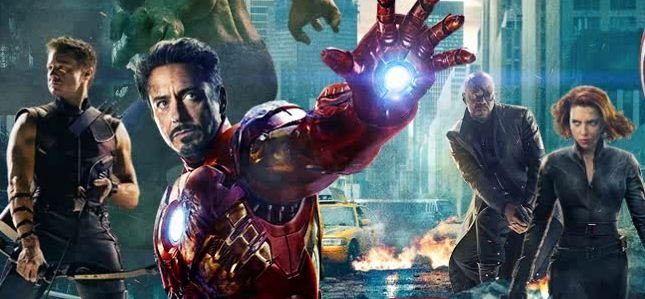What the Avengers Mean for Piracy
 When you look at the numbers, the Avengers had a great weekend at the box office, raking in over $200 million and shattering earlier records (before being adjusted for inflation). To be certain, there are many people at both Marvel and Disney who are very happy right now.
When you look at the numbers, the Avengers had a great weekend at the box office, raking in over $200 million and shattering earlier records (before being adjusted for inflation). To be certain, there are many people at both Marvel and Disney who are very happy right now.
However, some have taken the success of The Avengers to mean something that it doesn’t, making claims that it’s a sign piracy is not killing the industry or, in some cases, even hurting it. (Note: Found this relevant meme on Reddit after posting.)
There’s a lot of problems with that logic but the biggest is that it is a classic case of cherry picking, looking at one movie, over one weekend in one format and extrapolating the outcome to the entire industry.
The truth is much more complex but understanding the nuances may help frame the piracy debate in a more productive light.
Flawed Logic and Super Heroes
Saying that “The Avengers did well, therefore piracy is not an issue,” is akin to saying “It’s cold today, therefore there’s no global warming.” It’s looking at a small, narrow sample and trying to extrapolate results that are far too big.
However, even if you look at the broader numbers, it’s clear that box office results have done very well for themselves despite the increase in piracy. Even when adjusted for inflation, the box office has held up nicely, largely because movie theaters provide an experience that can’t be reproduced at home with an illegal copy of a movie.
Unfortunately though, the home market paints a very different picture. Though less is known about DVD sales since there are fewer figures, reports are that they began to collapse in 2009/2010. However, piracy alone is not to blame for this as many customers also switched to video on demand services (myself included).
In truth, the movie industry has long been better-insulated from piracy than other types of content, in particular music, due to larger file sizes and an experience that can’t be easily replicated. Music, books, images, etc. are obviously in a different position.
That being said, the affects of piracy aren’t felt uniformly throughout the industry either. As I discussed before, with copyright and piracy, every content creator and every work is different.
A major motion picture isn’t likely to be as impacted by piracy as a smaller one struggling for theater distribution and depending on DVD sales to earn a profit. This is what is reported by Ellen Seidler, the director (and financier) of And Then Came Lola.
In short, the impact of piracy on an industry is complex and not easily studied. If we picture an industry as a grassy field, it’s entirely possible that piracy will let the grass grow in one section (maybe even help it grow) while killing it elsewhere.
Changing the Conversation
This, of course, is the problem with trying to discuss piracy in the context of an industry. While we have to think about it along those lines for the purpose of legislation, such impacts are almost impossible to measure and draw any practical conclusions from.
In short, the impact piracy has on an industry is very nuanced and complex. The truth of its impact lies between “It’s Killing the industry” and “It’s not hurting anything” but one of the reasons that perspectives on it change so much is because one person may be seeing their work devastated by it and another may be thriving in spite or because of it.
This is why it’s important to think about piracy more on an individual level. An individual person, company, creation, etc. Though the impact is still difficult to study, it’s easier than looking at an industry as a whole and it creates an opening to take action one direction or another that can produce immediate change.
So, in addition to focusing on the three types of copyright conversations, maybe it’s also time we dialed the focus in a little and looked more on the smaller picture, rather than only trying to see the 10,000 ft. view.
Bottom Line
When you look at that small picture, it’s clear that The Avengers was not drastically impacted by piracy, at least not in its opening weekend. Maybe it could have made more without piracy, but it’s clear that it made much more money than many movies with far less illegal sharing.
However, to extrapolate that result to every movie made and being made is a deeply flawed logic. The issues are much more complex than that and, while piracy clearly isn’t a problem for every film, it is a problem for many.
Of course, some of the challenge of thinking about piracy on an individual level is that so much of the communication comes from industry organizations like the RIAA and MPAA. They frame their side of the discussion from the industry perspective because that’s the one they have.
As a result, we need more artists and creators to speak up. Whether it’s Patrick Vega talking about the impact music piracy has had on him or Neil Gaiman talking about how book piracy helped him reach new countries, we need these individual voices more than we need the industry ones.
Only then can we see just how complex the relationship between piracy and sales is and start to react accordingly.
Want to Reuse or Republish this Content?
If you want to feature this article in your site, classroom or elsewhere, just let us know! We usually grant permission within 24 hours.
